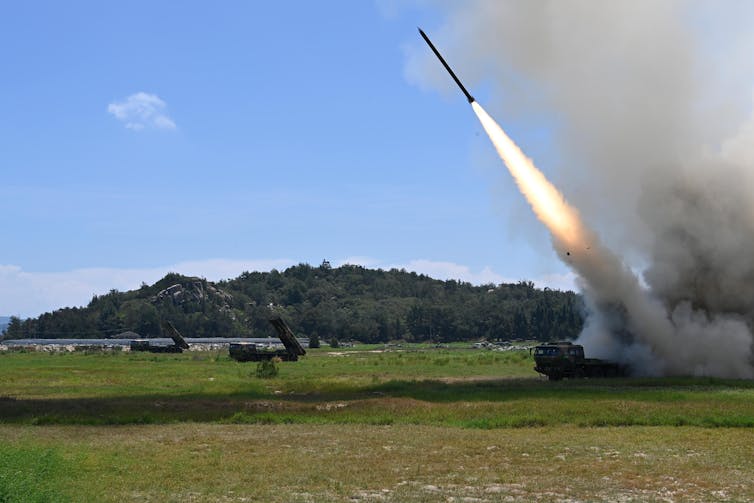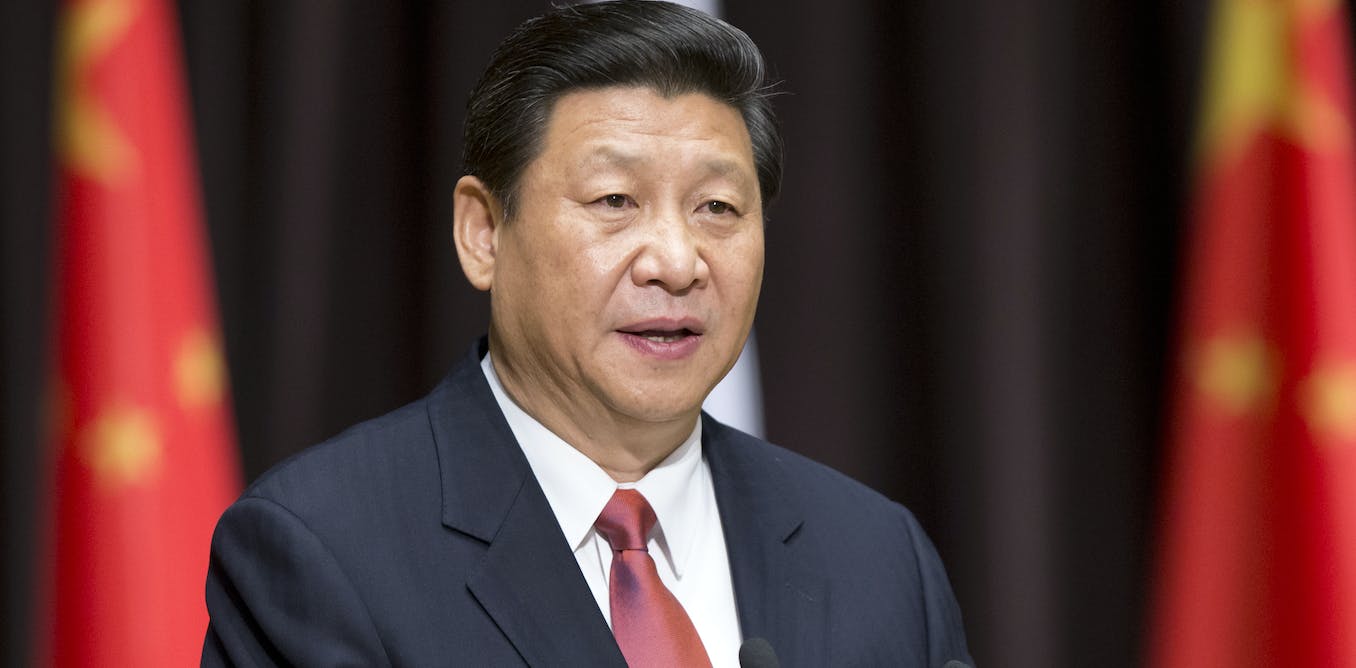In his New Year’s address, Chinese President Xi Jinping asserted that Taiwan “will definitely be unified” with China. Against the backdrop of China’s strengthening military posture in the Taiwan Strait, some Western journalists have framed Xi’s comments as an overt and direct threat to Taiwan. They argue that Xi’s rhetoric confirms concerns about a potential invasion.
This framework misses the point and overlooks the domestic political context of Mr. Xi’s speech. President Xi also praised the successes of the Chinese nation and economy, while recognizing the economic struggles of the Chinese people. This rhetoric is aimed at protecting Xi’s government rather than threatening Taiwan.
Western governments derive their legitimacy from the popular mandate established through elections. The legitimacy of the Chinese Communist Party (CCP) to rule China is also premised on delegation. However, this mandate is established not through elections, but through the party’s track record of ensuring continued economic prosperity and national success.
In this context, Xi’s emphasis on economic growth and the state should be considered performative, an example of political theater that portrays the Chinese Communist Party in a carefully curated way for Chinese audiences.
After the Cultural Revolution (which had disastrous consequences for China’s people and economy) and Mao Zedong’s death in 1976, the Chinese Communist Party reestablished its legitimacy on the twin pillars of economic prosperity and nationalism.
Former leader Deng Xiaoping secured economic pillars in the 1980s through reforms that lifted 800 million people out of poverty. The pillars of nationalism included retelling China’s history. The regime emphasized historical achievements, commemorated the national struggle, and portrayed the Chinese Communist Party as the vanguard of the Chinese nation.
Under Mao Zedong, Japan’s invasion of China during the Sino-Japanese War (the Chinese theater of World War II) was presented as an ideological class struggle. According to this story, both Chinese and Japanese workers were exploited by a militaristic bourgeois elite. Today, China’s nationalist narrative depicts Japan as a foreign oppressor that China heroically resisted and overcame under the leadership of the Chinese Communist Party.
This narrative of Chinese history has given rise to modern Chinese nationalism, which is sensitive to what it sees as the new sacrifice of the Chinese nation. This includes international opposition to unification with Taiwan, China’s historic province.
rely on nationalism
As China’s economy slows, the Chinese Communist Party is increasingly relying on its nationalist pillars to maintain legitimacy. This limits the Chinese Communist Party’s options in nationalist conflicts, as it must act in a way that upholds its nationalist credentials.
In 2005, large-scale anti-Japanese protests erupted in China after Japan downplayed the atrocities it committed during its invasion of China. On the back of economic growth of 11.4%, the Chinese Communist Party shut down public transport to prevent demonstrators from reaching major cities, and authorities condemned the protests.
However, by 2012, China’s economic growth rate had slowed to 7.9%. And the Chinese Communist Party remained particularly silent during similar large-scale anti-Japanese protests over the Senkaku Islands (known in China as the Diaoyu Islands), a territorial dispute in the East China Sea related to the Sino-Japanese War.
China’s nationalist movement criticized the Chinese Communist Party for being too soft on Japan and urged then-Vice President Xi to publicly renounce Japan’s territorial claims. This constitutes a performative acquiescence to nationalist pressures, with Xi acting to secure the nationalist pillars while the economic pillars waver.

BBBar / Alamy Stock Photo
Understanding Mr. Xi’s performance
President Xi’s mention of national reunification with Taiwan in his New Year’s address is consistent with the Chinese Communist Party’s growing reliance on nationalism to maintain legitimacy as China’s economy slows.
This also explains China’s stance in the Taiwan Strait. China’s economic growth rate in 2022 is 3%, the lowest growth rate since the reforms of the Deng Xiaoping administration (excluding the height of the coronavirus pandemic). Therefore, in order to avoid scrutiny, the Chinese Communist Party has strengthened its brinkmanship policy in the Taiwan Strait.
After all, this brinkmanship is unlikely to lead to war, given how an invasion would backfire on the Chinese Communist Party. If the invasion fails, the Chinese Communist Party will suffer serious damage to its reputation. A successful, prolonged and costly conflict would have similar effects.
In any case, the almost certain economic consequences, such as sanctions and embargoes, will undermine the party’s economic pillars.
Read more: Taiwan: How “porcupineism” can help deter armed conflict with China

Xinhua News Agency/Alamy Stock Photo
admit economic shortcomings
More interesting than Mr. Xi’s talk of unification is his recognition of the Chinese people’s economic struggles. In his speech, President Xi explained that “some people have had difficulty finding work and meeting their basic needs.”
There is little precedent for acknowledging the shortcomings of the economic prosperity brought by the Chinese Communist Party. To do so contradicts the pillars of the economy. This is especially strange given that the Chinese Communist Party has recently suppressed negative commentary on China’s economy to avoid undermining public confidence in China’s economic management.
As brinkmanship in the Taiwan Strait reaches its limits, the Chinese Communist Party appears to be shedding its overreliance on nationalist pillars. Rather, it may be recognizing the current economic problems and pursuing a strategy with fewer immediate risks, emphasizing the potential for economic growth under the Chinese Communist Party. This approach would be a safer way to maintain party legitimacy than escalating tensions in the Taiwan Strait.
President Xi’s speech signaled a shift in nuance in the Chinese Communist Party’s discourse, which could become increasingly apparent over the next year.
